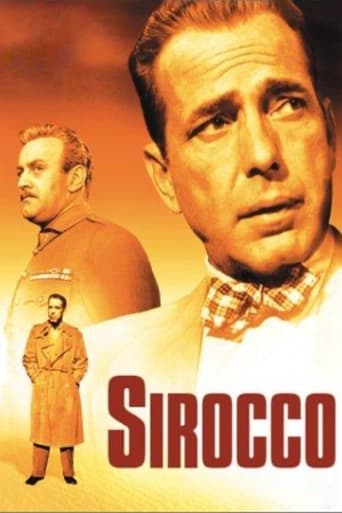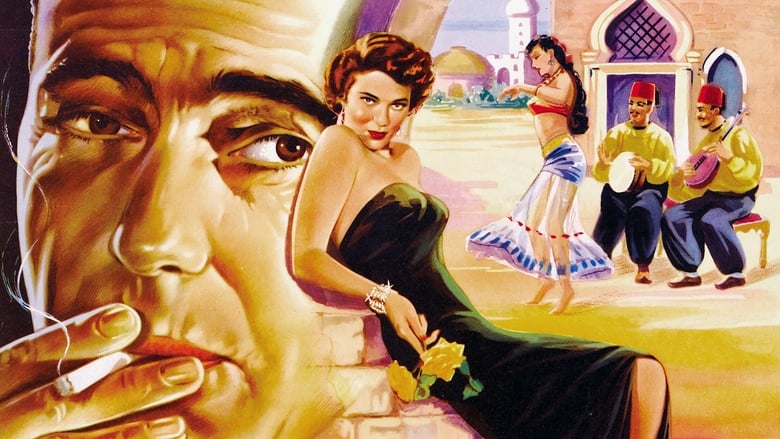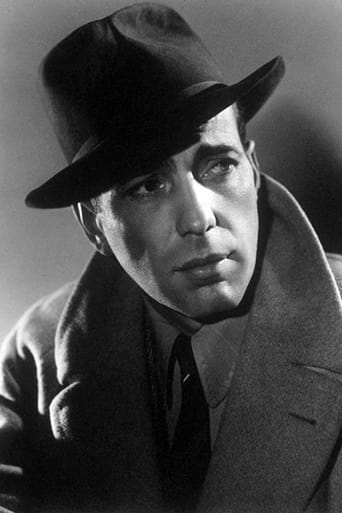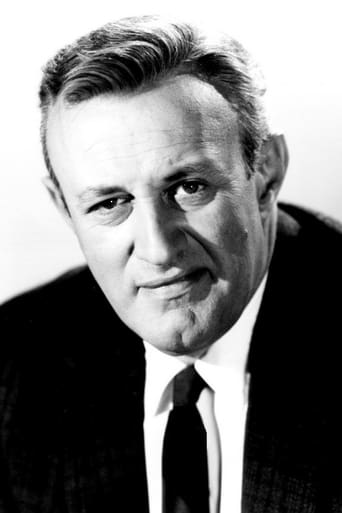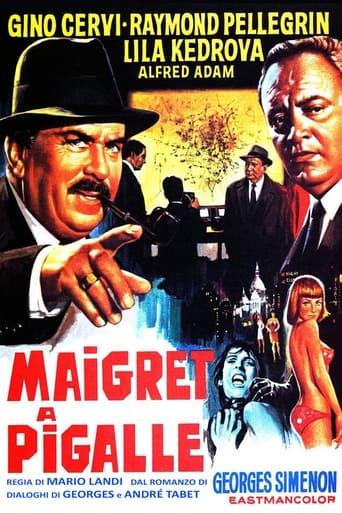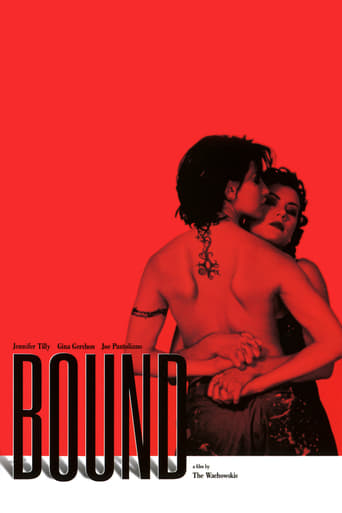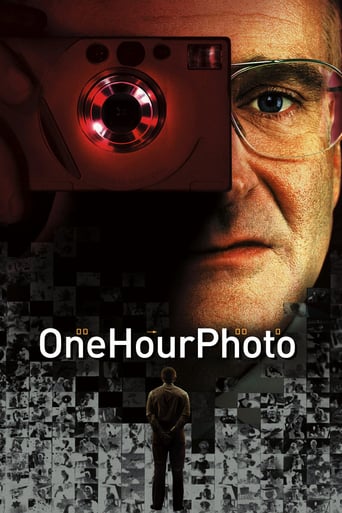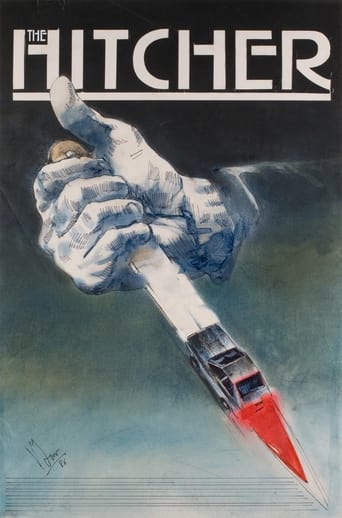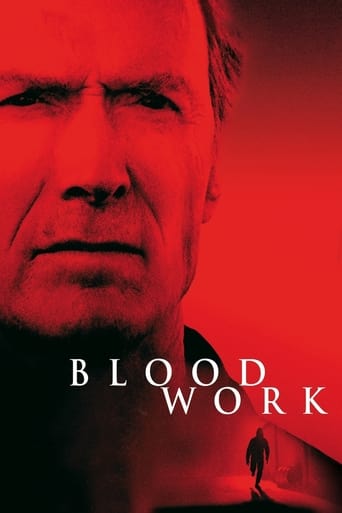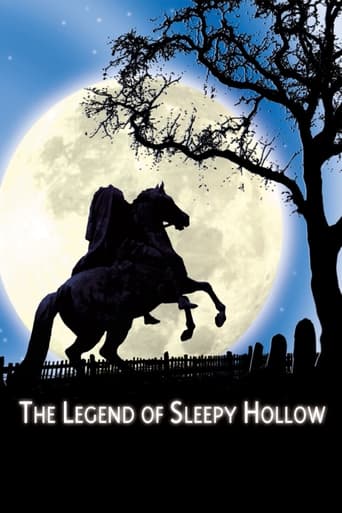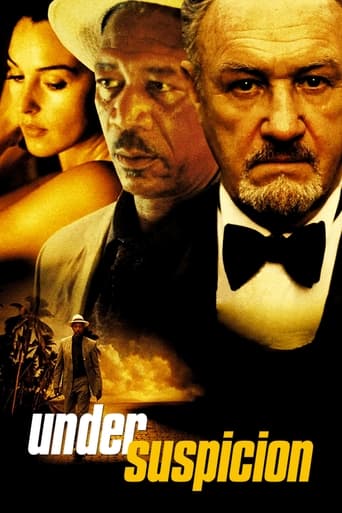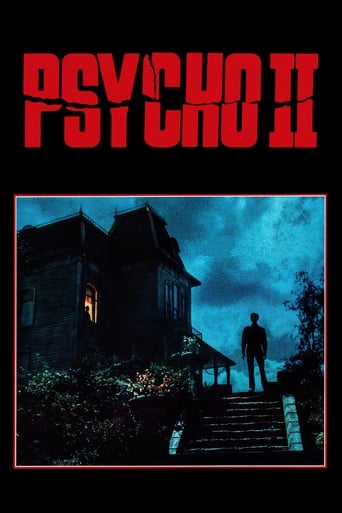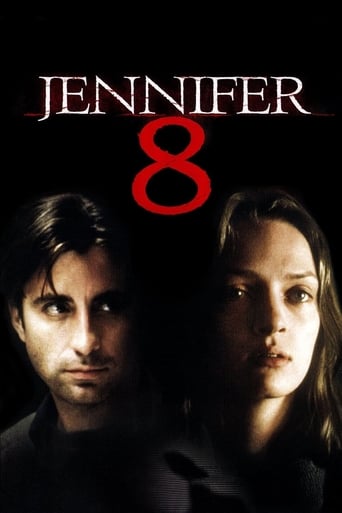Sirocco (1951)
A mysterious American gets mixed up with gunrunners in Syria.
Watch Trailer
Cast


Similar titles
Reviews
The first thing that needs to be said is that, although this film is supposed to be set in Syria, there is no sirocco wind in Syria. A sirocco (or scirocco), the word coming from the ancient Greek sirokos, comes off the Sahara, and nothing from the Sahara blows as far as Syria. There is a similar strong wind in Syria, but it is called the shluq. Moving on, as there is so much going on in Syria at the moment, I thought I would get Humphrey Bogart's take on it all. This film is pure Hollywood hokum, set in 'war-torn Syria' in 1925. Needless to say, it is all made in a Hollywood studio and there does not appear to be a real Arab in the cast. Bogart plays a gun-runner who falls for beautiful, mysterious Marta Toren, but she is Lee J. Cobb's gal, and Cobb is the head of military intelligence in Damascus, because Syria is under French occupation. Cobb doesn't like Bogart at the best if times, and these are not the best of times. The people to whom Bogart is selling the arms are the locals, who are 'fighting for their freedom' because 'we want to run our own country'. Well, look what a mess they made of that! Still, 'freedom' sounds good, even if it does lead to the Assad family in the end. Just so that everyone understands the background, I should explain that Syria was part of the Ottoman Empire and was ruled by the Turks until 1918, upon whom the French were a significant improvement. Because the Turks sided with the Krauts in the First World War, their empire, like the Austro-Hungarian one, got dismembered and divided up between the victors. The British got Iraq and the French got Syria and a new country which came to be called Lebanon. These countries were then called 'protectorates'. In fact, somebody had to take them over, as the Turks were thrown out. And if it weren't for Humphrey Bogart, we might never have had the Assads, and the tens of thousands of Syrians massacred by father and son of that family might not have died. Or at least, that is the Hollywood view. This film is mildly entertaining and has three interesting stars in it, but I would not really rate it as 'three star'.
Even the biggest stars and finest actors are entitled to the occasional turkey and Thanksgiving came early in 1951 for Bogie, Lee Cobb and Everett Sloane. To watch him here virtually phoning it in it seems barely credible that a scant two years earlier Lee Cobb had galvanized Broadway when he created the role of Willy Loman in Arthur Miller's Death Of A Salesman, nor does Sloane retain anything of his outstanding performances in Citizen Kane, The Lady From Shanghai, The Enforcer nor does his lacklustre performance give any hint of what's to come - his brilliant Hollywood agent in The Big Knife, Graziano's manager in Somebody Up There Likes Me, for example. Marta Toren died tragically just months short of her thirty first birthday but she died metaphorically every time she tried to act - and perversely for a Swede had a filmic penchant for the middle East having 'starred' previously opposite Tony Martin in Casbah, the third and by far worst remake of Pepe Le Moko. In truth there's not a lot to praise here, Joseph Kessel was a fine novelist whose L'Armee des ombres became the basis of what is arguably the finest film about the Resistance ever made, yet what they did to his novel Coup de Grace here doesn't bear thinking about. Bogie is, of course, always worth watching and Bogie completists should and will see it but that's about the best you can give it.
There's a general rule to follow about Bogart films: if he's wearing a bow tie, its going to be a disappointment. "Sirocco" is no exception.Even Bogart himself called this film "a mess". He wasn't wrong. There's a lot of pieces here that sound great--Bogart as Harry Smih, an arms merchant in Damascus--Everett Sloan as the French commandant--Lee J. Cobb as the French officer who's trying to bring peace while losing his woman to Bogart--catacombs, mysterious events--but it never comes together.The script is just a confusion of parts and after watching it again, Bogart seems to be playing second fiddle to Lee J. Cobb. Never heard of Marta Toren? There's a reason. She may sound like Bergman, but she does not have any of Bergman's charm, talent or magnetism. She actually gets a bit grating at times. As for the direction, I can only say this director also directed "Conflict" another third rate Bogart film.There is no romance, no heart to what happens to Harry Smith at the end of this either. If at least he would have had a meaningful exit, this film might have been worth watching. But instead, it fulfills the bow tie rule quite nicely and is not recommended for anyone but the most hard-core Bogart fans who have to watch everything he's in...(sigh)...like me.
Just finished watching this movie after seeing the 2003 PBS documentary "Lawrence of Arabia: Battle for the Arab World," which adroitly lays out how in 1916 the French and British brokered a back room deal (known historically as the 'Sykes-Picot Agreement')during World War I which secretly 'decided' how ownership of the vast and varied Middle Eastern Arab ancestral homelands would be controlled by the European powers after the war. This deal was made by the British while they were simultaneously promising, thru its trusted Military Officer in Arabia, T.E. Lawrence, independence to the Arab freedom fighters after the war. The Brits promise was as reliable as those made by the US in American Indian Treaties. After the Arabs defeated the Ottoman Army and won their freedom in the Middle East, the British and French moved in and took control of Arab lands at the close of WWI. France was given "ownership'of Syria among other Arab territories at the post-WWI peace conference, setting the stage for the period of this movie in 1925, when the Syrian freedom fighters are fighting the invading French terrorists for control of its homeland and Bogart plays a Halliburton-like character (a young Dick Cheney maybe?) engaged in profiteering from the conflict.There are two major flaws in the script that have been alluded to in some of the reviews included herein. One reviewer writes that he is "impressed by the way 'Sirocco' refused to overtly side with either the French or the Syrians." Nonsense. In the film, it is the Syrians who do not honor their word and in a coy double-cross, kill our cinema hero Bogart in the end. In a previous scene, the French are portrayed as honoring their word by giving Bogart the travel Visa he was promised despite him admitting to brokering a secret and dangerous meeting between the Syrians and the head French Intelligence Officer (Lee J Cobb). This is a coy way of the movie siding with the French since the subliminal (and not so subliminal) takeaway is that the Arabs word can't be trusted. You are expected, of course, to disregard who's in whose fruggin' country anyway causing the problem.Several other reviewers here have made reference to how at the end of the film the opportunist Bogart still manages to "do the right thing" or support "the right cause." This is more nonsense. What they are referring to is Bogart's decision to lead the French to Syrian headquarters to attempt to negotiate the 'release' of the French intelligence officer who had voluntarily traveled to Syria to attempt to initiate some kinda undefined "peace talks." The question to ask yourself is how is anything Bogart's character does to support the French in this movie considered "noble" or the "right thing?" It is 1925, and the French have invaded an innocent and non-threatening foreign people and their homeland. Supporting the invader isn't "nobel," its criminal. Supporting Syria is what would be nobel. The Syrians are not at fault in this conflict for defending their homeland from invasion. Another reviewer writes "Yes, its the Syrian's home, but their 'tactics' are sickening." That's an odd statement, since they use pretty much the same 'tactics' our Revolutionary 'founding fathers' used in America, and America wasn't even the founding fathers' ancestral homeland! Besides, I'd like to see what 'tactics' that reviewer would use if a foreign terrorist group burst in his home, killed several family members, and took ownership of his assets. I doubt that his 'tactics' would consist of cordial discussions over a cup of tea.

